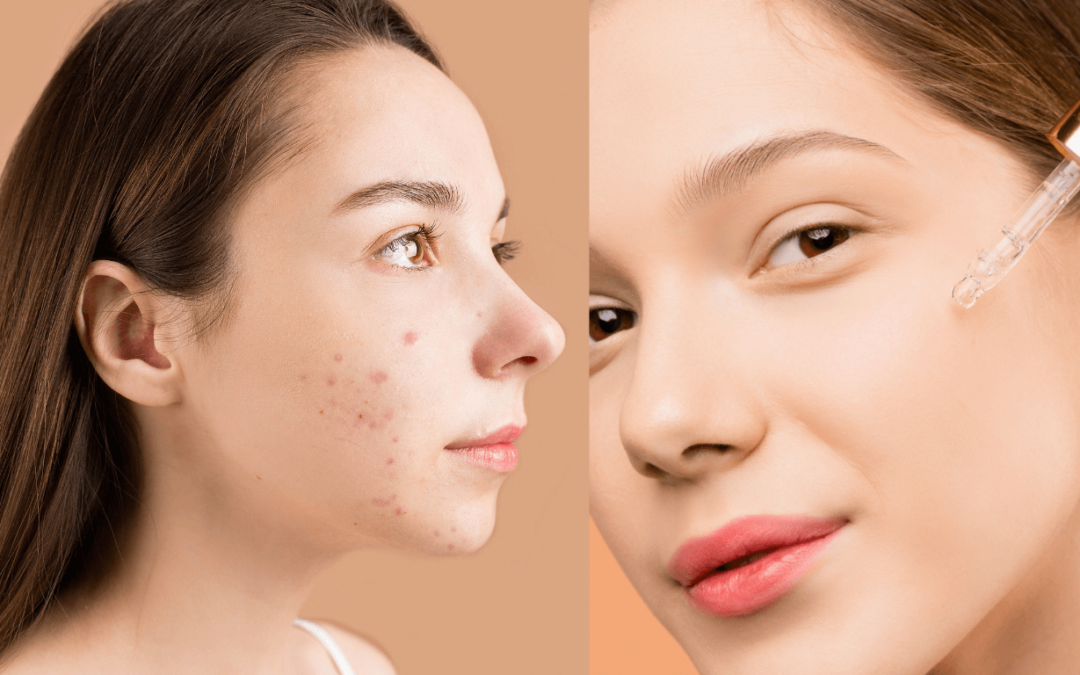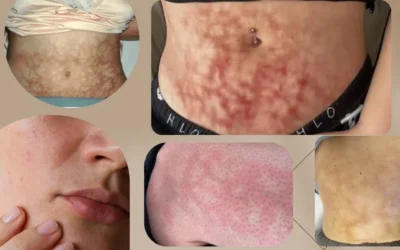Are you tired of battling persistent acne and longing for clear, blemish-free skin? You’re not alone. Acne can be a frustrating and confidence-diminishing condition, but with the right knowledge and skincare routine, you can take control of your skin’s destiny.
In this comprehensive guide, we will explore effective strategies, treatments, and preventive measures to clear your skin from acne once and for all.
From understanding the underlying causes to adopting a tailored skincare routine, we’ve got you covered. Get ready to bid farewell to acne and welcome clear, radiant skin!
Understanding Acne: The Basics
To effectively combat acne, it’s crucial to understand its causes and types. Let’s delve into the fundamentals:
Types of Acne: Learn about the various forms of acne, including whiteheads, blackheads, papules, pustules, nodules, and cysts. Understanding these distinctions will help you identify your specific acne type and tailor your treatment accordingly.
Causes of Acne: Discover the factors that contribute to acne, such as excess sebum production, clogged pores, bacteria, hormonal fluctuations, and inflammation.
By grasping the basics of acne, you’ll be better equipped to develop a targeted approach to clearing your skin.
Establishing a Consistent Skincare Routine
A consistent and tailored skincare routine is paramount in your quest for clear skin. Follow these steps to develop a routine that works for you:
Cleansing: Choose a gentle cleanser that suits your skin type. Look for ingredients like salicylic acid or benzoyl peroxide, known for their acne-fighting properties. Cleanse your face twice daily to remove impurities and excess oil without stripping your skin.
Toning: Incorporate a toner into your routine to help balance the pH of your skin and remove any remaining traces of dirt or cleanser.
Treating: Apply targeted acne treatments, such as creams or gels containing ingredients like benzoyl peroxide, retinoids, or tea tree oil. These ingredients can help reduce inflammation, unclog pores, and kill bacteria.
Moisturizing: Even acne-prone skin needs hydration. Choose a non-comedogenic moisturizer to keep your skin balanced and prevent dryness. Consistency is key when it comes to skincare routines. Stick to your routine diligently to see long-lasting results.
Banishing Acne with Topical Treatments
Topical treatments play a crucial role in targeting acne directly. Consider the following options:
Benzoyl Peroxide: Known for its antibacterial properties, benzoyl peroxide helps kill acne-causing bacteria and reduce inflammation. Start with a low concentration and gradually increase if needed.
Retinoids: Derived from vitamin A, retinoids are renowned for their ability to unclog pores, promote cell turnover, and reduce acne lesions. Begin with a low strength and gradually increase frequency of use to minimize potential side effects.
Salicylic Acid: Ideal for oily or acne-prone skin, salicylic acid exfoliates the skin, unclogs pores, and reduces inflammation. Incorporate products containing salicylic acid into your routine, such as cleansers, toners, or spot treatments.
Tea Tree Oil: With its natural antibacterial properties, tea tree oil can help combat acne and reduce inflammation. Dilute tea tree oil before applying it to your skin to avoid irritation.
Always introduce new treatments gradually to assess how your skin reacts and consult with a dermatologist for personalized advice.
Nurturing Your Skin from Within: Diet and Lifestyle
While external treatments are crucial, nourishing your skin from within is equally important. Consider the following tips:
Healthy Diet: Opt for a balanced diet rich in fruits, vegetables, whole grains, lean proteins, and healthy fats. Minimize your intake of processed foods, sugary snacks, and greasy fast food, as they may trigger acne.
Hydration: Stay hydrated by drinking an adequate amount of water daily. Hydration helps maintain skin elasticity, flush out toxins, and support overall skin health.
Stress Management: Stress can exacerbate acne. Practice stress-management techniques such as meditation, yoga, or deep breathing exercises to keep your stress levels in check.
Quality Sleep: Get sufficient sleep to allow your body to repair and regenerate. Lack of sleep can lead to hormonal imbalances and inflammation, worsening acne.
Taking care of your overall well-being can have a positive impact on your skin’s clarity and health.
Professional Guidance: When to Seek Help
If your acne persists despite your efforts or if it significantly affects your quality of life, it may be time to consult a dermatologist or skincare professional.
They can assess your condition, provide advanced treatments, and offer personalized advice tailored to your specific needs.
Incorporate these strategies into your daily routine, maintain patience, and celebrate the progress along the way.
Achieving clear skin is a journey, but with perseverance and the right approach, you’ll eventually bid farewell to acne and welcome a radiant complexion.
Exfoliation for Clearer Skin
Regular exfoliation helps remove dead skin cells, unclog pores, and promote skin cell turnover. Consider incorporating exfoliation into your skincare routine using:
Chemical Exfoliants: Look for products containing alpha-hydroxy acids (AHAs) or beta-hydroxy acids (BHAs) like glycolic acid or salicylic acid. These exfoliating ingredients help improve skin texture and prevent clogged pores.
Physical Exfoliants: Use gentle physical exfoliators like soft brushes or konjac sponges to slough off dead skin cells without causing irritation.
Remember to exfoliate no more than twice a week to avoid over-exfoliation, which can lead to skin sensitivity.
Protecting Your Skin from Sun Damage
Sun exposure can worsen acne and lead to post-inflammatory hyperpigmentation. Protect your skin by:
Using Sunscreen: Apply a broad-spectrum sunscreen with an SPF of 30 or higher daily, even on cloudy days. Look for non-comedogenic and oil-free formulations to prevent clogged pores.
Avoiding Peak Sun Hours: Limit your time in the sun, especially during peak hours when the sun’s rays are the strongest.
Wearing Protective Clothing: Cover exposed skin with clothing, hats, or sunglasses to provide additional protection.
Protecting your skin from the sun not only helps prevent acne flare-ups but also maintains overall skin health.
Hands Off: Avoiding Skin Irritation
Constantly touching or picking at your acne can introduce bacteria and cause further irritation. Follow these tips:
Hands-Off Approach: Refrain from touching your face throughout the day, especially if your hands aren’t clean.
No Picking: Avoid picking or squeezing acne lesions, as this can lead to scarring and prolong the healing process.
Cleanse After Gym Workouts: If you engage in workouts that make you sweat, cleanse your face and body afterward to remove sweat and bacteria.
By adopting a hands-off approach, you’ll minimize the risk of aggravating your skin and promote faster healing.
Makeup Tips for Acne-Prone Skin
Applying makeup correctly can help conceal acne while allowing your skin to breathe. Consider the following tips:
Choose Non-Comedogenic Products: Opt for makeup labeled as non-comedogenic or oil-free to avoid clogging your pores.
Cleanse Thoroughly: Make sure to remove all makeup at the end of the day using a gentle cleanser.
Avoid Heavy Coverage: Instead of heavy foundation, use lightweight, buildable formulas or spot conceal individual blemishes.
Makeup can be a tool to enhance your confidence, but it’s essential to choose products that won’t exacerbate your acne.
Patience and Persistence: Managing Expectations
Clearing skin from acne is a gradual process, and results may vary from person to person. Keep these points in mind:
Consistency: Stick to your skincare routine consistently and give it time to work. It may take several weeks or months to see significant improvements.
Manage Expectations: Understand that achieving clear skin is a journey, and setbacks may occur. Be patient and focus on long-term progress.
Celebrate Small Victories: Acknowledge and celebrate even the smallest improvements in your skin. Positive reinforcement can boost your motivation and self-esteem.


